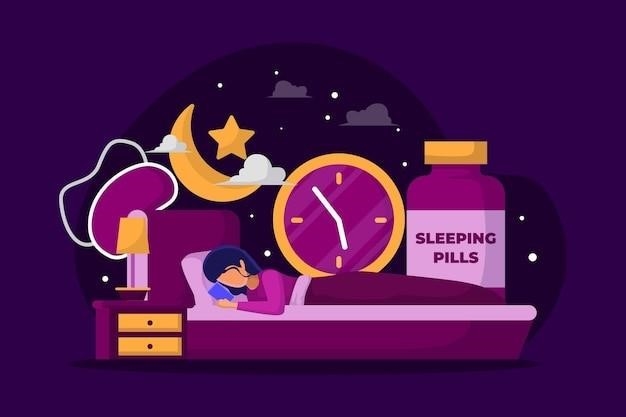Article Plan⁚ Melatonin’s Role in Regulating Circadian Rhythms
Melatonin‚ a hormone secreted by the pineal gland‚ plays a crucial role in regulating the body’s circadian rhythm and sleep-wake cycle․ It entrains and shifts the circadian rhythm‚ promoting sleep in the evening with darkness․ Melatonin also impacts various physiological conditions‚ body weight‚ ocular activities‚ and seasonal behaviors․ Clinical studies have shown significant benefits of melatonin treatment in disorders associated with disrupted melatonin rhythms‚ such as sleep-related issues‚ jet lag‚ shift work‚ and insomnia․ Its synchronization of circadian rhythms makes it a valuable tool in the management of sleep disorders and other circadian-related conditions․

Melatonin and Sleep-Wake Cycle
Melatonin plays a vital role in the sleep-wake cycle by entraining and shifting the circadian rhythm․ The hormone’s production increases in the evening with darkness‚ promoting sleep and orienting the body’s circadian rhythm․ Understanding how melatonin influences the sleep-wake cycle can aid in optimizing sleep patterns and overall well-being․ It is essential to consider melatonin’s impact on circadian rhythmicity to support healthy sleep habits and maintain a synchronized internal clock․
Effects of Melatonin on Circadian Rhythmicity
Melatonin has significant effects on circadian rhythmicity‚ including entraining and shifting the circadian rhythm to align with the natural day-night cycle․ This hormone is crucial in regulating various physiological conditions and plays a key role in maintaining sleep‚ body weight‚ ocular activities‚ and seasonal behaviors․ Understanding the impact of melatonin on circadian rhythms is essential for optimizing overall health and well-being․ Utilizing melatonin to synchronize circadian rhythms can help improve sleep patterns and support a balanced internal clock․
Clinical Significance of Melatonin Treatment
Clinical studies have demonstrated the significant benefits of melatonin treatment in disorders associated with disrupted melatonin rhythms‚ such as sleep-related issues‚ jet lag‚ shift work‚ and insomnia․ The use of melatonin in these conditions can help regulate circadian rhythms‚ improve sleep quality‚ and enhance overall well-being․ Understanding the clinical significance of melatonin treatment is important for individuals seeking to address sleep disturbances and align their internal clock for better health outcomes․

Melatonin’s Impact on Human Circadian Rhythms
Understanding how melatonin impacts human circadian rhythms is key to maintaining a balanced internal clock and optimizing sleep patterns․ Melatonin‚ often referred to as the hormone of darkness‚ regulates various physiological conditions‚ seasonal behaviors‚ and sleep-wake cycles․ By synchronizing circadian rhythms‚ melatonin helps individuals maintain a healthy sleep schedule and promote overall well-being․ Incorporating knowledge about melatonin’s influence on circadian rhythms can assist in structuring daily routines to align with natural day-night cycles for improved health outcomes․
Melatonin Synchronization of Circadian Rhythms
Melatonin acts as a powerful synchronizer of human circadian rhythms‚ making it a valuable tool for managing sleep disorders and other circadian-related conditions․ By leveraging the ability of melatonin to regulate the sleep-wake cycle‚ individuals can optimize their daily routines and ensure better alignment with natural day-night cycles․ Incorporating melatonin or melatonin agonists into clinical medicine can aid in manipulating circadian rhythms‚ promoting restful sleep‚ and addressing various circadian disorders efficiently․

Leave a Reply